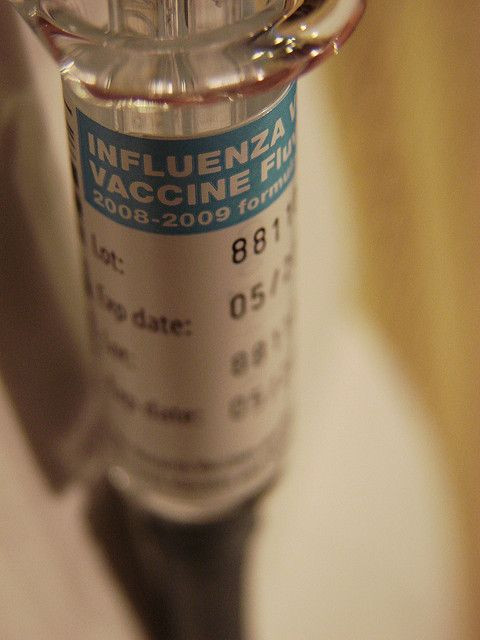New Study Links Influenza Infection With Bipolar Disorder; Moms Really Can Drive Kids Crazy

It turns out a woman who's sick during pregnancy isn't the only one feeling the effects. A new study in Journal of the American Medical Association Psychiatry indicates that influenza infections during pregnancy create a fourfold greater risk for children to develop bipolar disorder.
Bipolar disorder is a mental illness in which an individual experiences mood swings from mania to extreme happiness to depression or melancholy. Individuals are born with predispositions toward this disease, based on brain development in the womb, but the disorder may not be diagnosed until adulthood. Bipolar disorder affects nearly 5.7 million Americans, but this new discovery of its roots in maternal flu infections may lessen the incidence of diagnosis.
In the study, Alan Brown and colleagues exposed pregnant women to influenza and other respiratory infections during different trimesters of their pregnancies. They found that infection with influenza during the first and second trimesters makes children four times more likely to develop bipolar disorder. During the first trimester, fetus's vital organs, like the lungs, eyes, and heart, and the body's systems like the nervous circulatory systems, are starting to establish themselves. At this stage in pregnancy, women are usually advised to refrain from consuming alcoholic beverages or smoking, in order to avoid serious birth defects and create optimal conditions for the beginning stages of their child's development.
Researchers have deemed the third trimester most dangerous for influenza infection because the risk increases significantly. If exposed in the third trimester of pregnancy, the child is five times more likely to develop bipolar disorder than children exposed to influenza in other trimesters. This finding regarding the third trimester is certainly of interest because while women are warned to be very careful about their health in the first trimester, the rules are a little more lax in the last. This is because all of the baby's major organs have developed, meaning the occasional glass of wine or plate of spicy food will not cause serious harm to the child at this point. However, this finding suggests that infections, like the flu, are harmful enough to cause the most deleterious effects even after this major organ development.
Notably, influenza infection at any time during a pregnancy increases the risk of bipolar disorder in children, regardless of the mother's age, the fetus's age (in days or weeks) at the time of infection, race, educational level, or medical history of psychiatric disorders.
The study followed 92 women and their children from pregnancy until the children had reached 15 to 20 years of age and established that nearly all of those children developed bipolar disorder in adulthood. Remarkably, 77 of the 92 children who developed bipolar disorder had mothers with no history of a psychiatric disorder. This clearly indicates that given a dangerous teratogen, hereditary defaults will have no effect.
Other respiratory infections in any trimester, like the common cold, tuberculosis, or sinusitis, pose no risk for the development of bipolar disorder.
Is it all in our heads? Perhaps not. Another study, also by Dr. Alan Brown in 2008 and published by the Journal of Psychiatry and Neuroscience, found that maternal infections with influenza contributed to children's development of another psychiatric and neurologically based disorder, schizophrenia. The reasons cited include the influenza virus attacking the fetus's brain, medications used to treat flu-like symptoms altering the child's brain.
The prenatal causes of bipolar disorder are similar to those of schizophrenia. Tested children were found to have lower brain protein levels that are important for neurological development. Similarly, some children born in the winter, a period during which flu infections are prevalent and perilous, had abnormal brain lesions in parts of their brains.
Prevention of infections, like the flu, not only ensure safe and healthy pregnancies but also guarantee children a better quality of life. This study and another in 2008 suggest that flu shots provide considerable benefits for mothers and their unborn children.



























